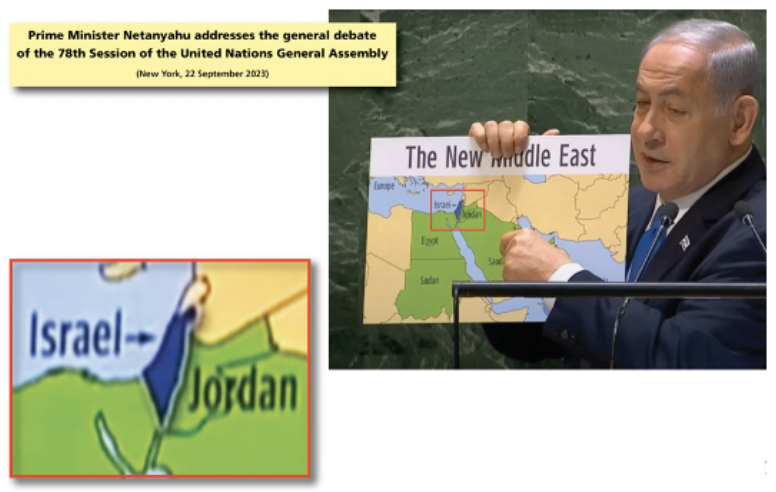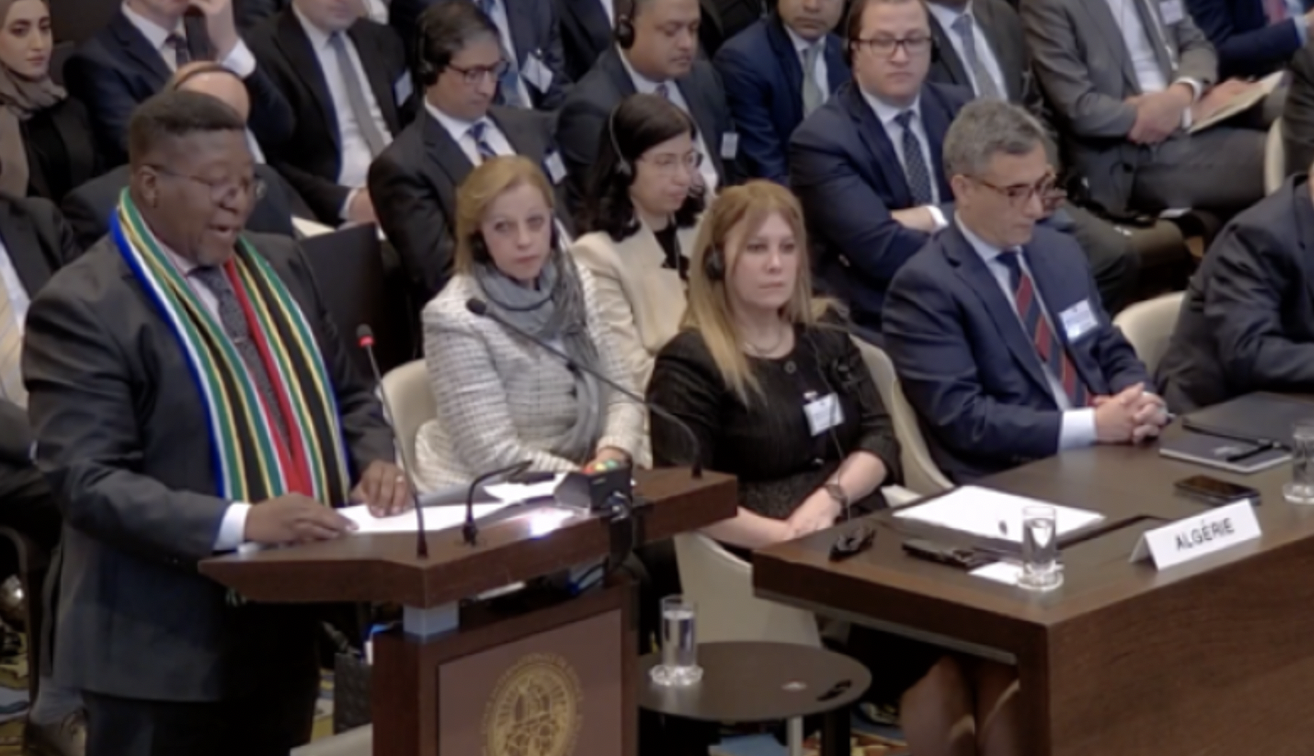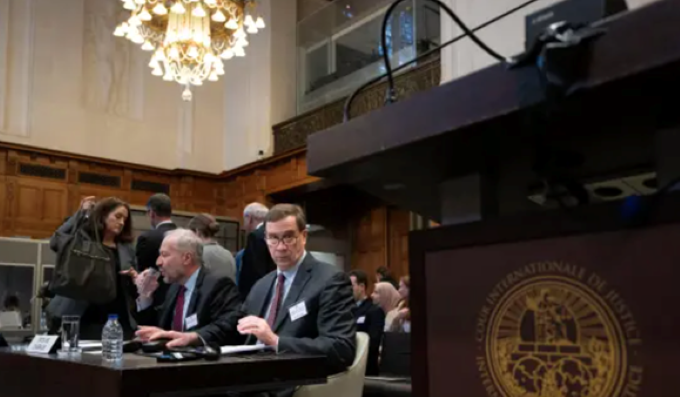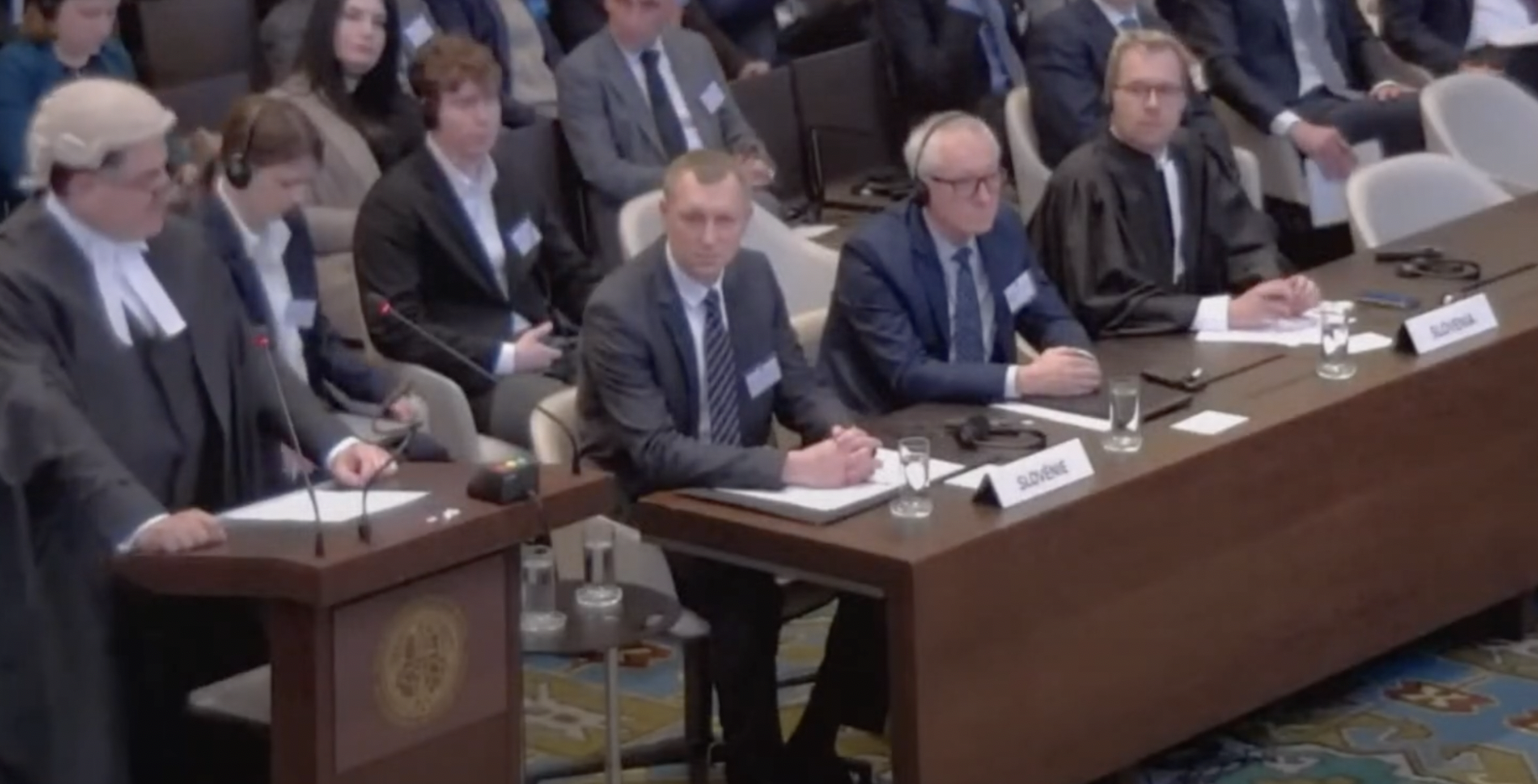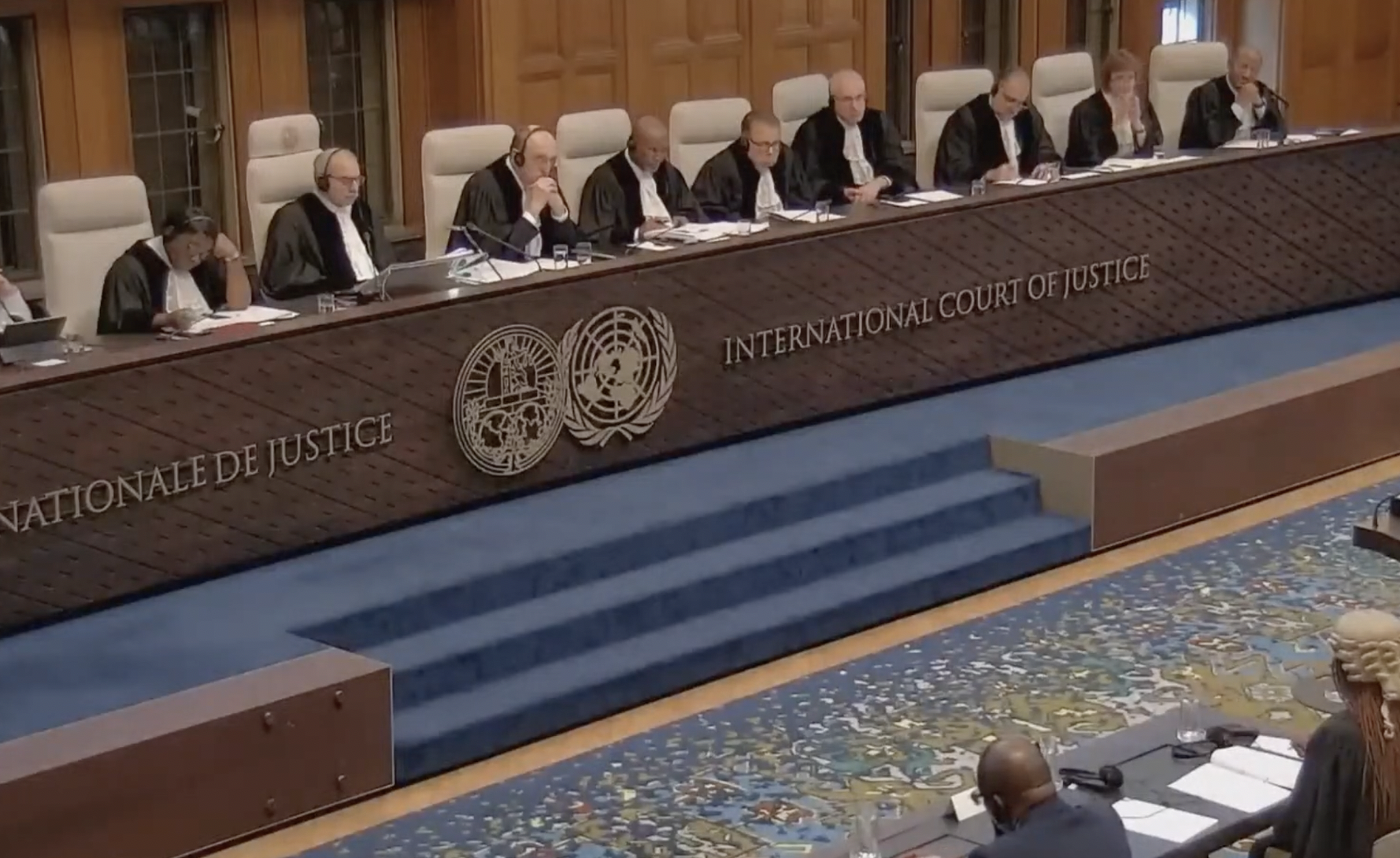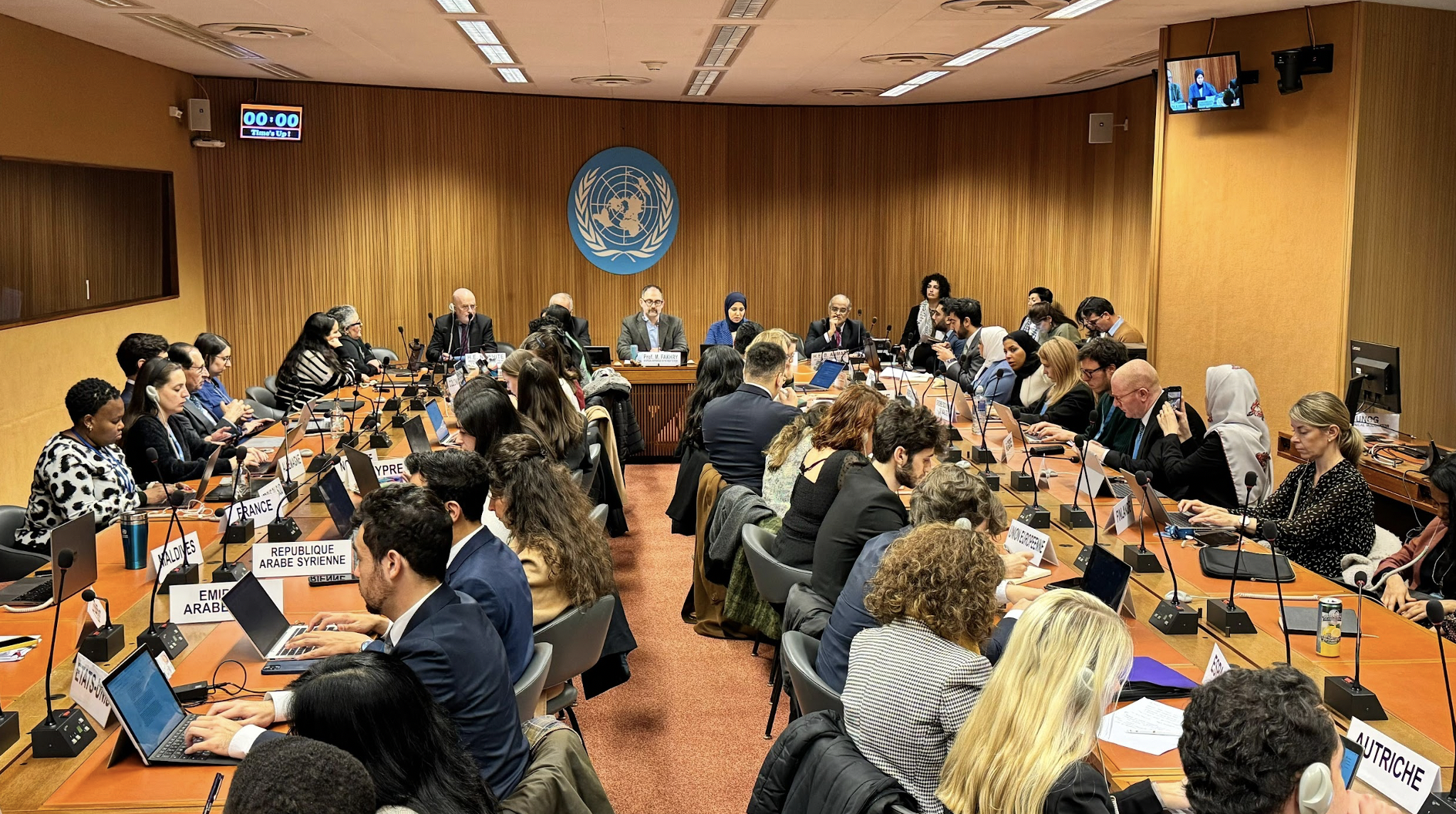Day 4: the International Court of Justice (ICJ) Continues to Hold Public Hearings in the Advisory Proceedings - State of Palestine
On 22 February 2024, the court continued hearings with delegations from China, Iran, Iraq, Ireland, Japan, Jordan, Kuwait, Lebanon, Libya, Luxembourg, and Malaysia. Mauritius responded to a request from the United Nations General Assembly (UNGA) regarding issues concerning the occupied Palestinian territory. The International Court of Justice (ICJ, or the Court), inter alia, grappled with the following questions:
"(a) What are the legal consequences arising from the ongoing violation by Israel of the right of the Palestinian people to self-determination, from its prolonged occupation, settlement and annexation of the Palestinian territory occupied since 1967, including measures aimed at altering the demographic composition, character and status of the Holy City of Jerusalem, and from its adoption of related discriminatory legislation and measures?” and “(b) How do the policies and practices of Israel referred to in paragraph 18 (a) above affect the legal status of the occupation, and what are the legal consequences that arise for all States and the United Nations from this status?".
On 22 February 2024, China’s representative Mr Ma Xinmin elaborated on the arguments raised by the United States regarding the advisability of the Court to render an advisory opinion. China sustained that the contention that such an opinion would contravene the principle of consent is unfounded, as the Advisory Opinion process is inherently designed to provide impartial guidance on matters of international law, regardless of explicit consent from involved parties. Furthermore, concerns about undermining the established legal framework for addressing the question of Palestine or impeding negotiation processes were deemed invalid. Mr Xinmin stated that an advisory opinion could complement existing mechanisms by offering clarity and guidance, ultimately aiding in the pursuit of a peaceful resolution.
On the Right to Self-Determination
On the right to Self-Determination, Mr Xinmin expressed that the Palestinian people's resistance against Israeli oppression and their pursuit of establishing an independent state on the occupied territories are undeniably just actions aimed at reclaiming their legitimate rights. “In pursuit of the right to self-determination, Palestinian people's use of force to resist foreign oppression and complete the establishment of an independent state is (an) inalienable right well founded in international law”. Central to their struggle is the fundamental principle of self-determination, which serves as the precise legal foundation for their aspirations. Being found in the United Nations Charter and recognized as a collective human right under customary international law, self-determination is a cornerstone of modern international legal norms. This principle was reaffirmed and endorsed by Chinese Premier and Foreign Minister Zhou Enlai during the 1955 Bandung Conference, where China pledged full support for the self-determination of peoples and nations as outlined in the UN Charter.
On the Right to Self-Determination and the Prolonged Occupation
Country delegations such as Iran and Jordan spoke on the legal status of the right to self-determination as previously stated in these hearings and generally understood to be attributed to “peoples” and grounded first in the United Nations Charter, in several United Nations General Assembly resolutions, and its inclusion in common Article 1 of the two International Covenants of Human Rights:
“all peoples have the right freely to determine, without external interference, their political status and their place in the international community and to pursue their economic, social and cultural development, and every State has the duty to respect this right in accordance with the provisions of the Charter”
They stated that in line with the elements mentioned, Israel's occupying regime reaffirms its intention to perpetuate the occupation, which stands as the longest military occupation in existence today. This continued occupation denies the Palestinian people their right to self-determination. One of the key measures that has violated this right is the altering character of the occupation. Representative of the Islamic Republic of Iran, Mr Reza Najafi, brought to light the altering character of the Holy City of Al-Quds. The alteration of Al-Quds' status holds profound religious and cultural significance for Palestinians, as well as for adherents of Islam, Christianity, and Judaism worldwide. Al-Quds Al-Sharif stands as a symbol of immense religious and historical importance for Palestinians, making any changes to its status quo – deeply impactful. Through these alterations, the Israeli occupying regime not only undermines the cultural heritage and identity of Palestinians but also violates their inherent right to self-determination. “The establishment of the Israeli regime was done through a violent process which involved the forcible displacement of native Palestinian people to create a majority Jewish colony in line with the Zionist movement”, said Najafi. The construction and expansion of settlements, coupled with restrictions on Palestinians' freedom of movement and the revocation of residency permits, have further exacerbated these violations, resulting in a significant demographic and cultural shift within the city.
Mr Ahmad Ziadat appeared before the Court on behalf of the Hashemite Kingdom of Jordan. In his statement, he affirmed that Jordan and the Hashemite Royal Family hold a distinctive position as protectors of the Muslim and Christian holy sites in Jerusalem. According to Mr Ziadat, this role bears immense significance globally as it contributes to maintaining peace and upholding the historical status quo of Jerusalem's sacred sites. Given the city's revered status to Muslims, Christians, and Jews, representing a significant portion of the world's population, he states, “Jerusalem must be a city of peace.” Preserving the established status quo serves as a crucial factor in fostering this peace and mitigating global religious tensions. Jordan’s protective role is recognized historically and internationally, affirmed by various influential entities including the United States, the European Union, Russia, the United Kingdom, the Vatican, Islamic States, and even Israel itself. Mr Ziadat then cites the final declaration of the Joint Arab-Islamic Summit held this year (2024):
“[T]he blessed Al-Aqsa Mosque, . . . with its entire area of 144 thousand square metres, is an exclusive place of worship for Muslims... [and it is under the management of the Jordanian Jerusalem Awqaf] within the framework of the historical Hashemite Custodianship of the Islamic and Christian Holy Sites”.
Article 2 (1) of the Jordan-Palestine Agreement of 2013104 states:
“His Majesty King Abdullah II, as the Custodian of the Jerusalem Holy Sites, exerts all possible efforts to preserve the Jerusalem Holy Sites . . . and . . . to represent the interests of the Holy Sites in international forums and competent international organisations through feasible legal means.”
He asserts that Israel itself recognized Jordan’s special role in the Treaty of Peace between Jordan and Israel of 1994. Article 9 (2) of the treaty provides: “In this regard, . . . Israel respects the present role of the Hashemite Kingdom of Jordan in the Muslim holy shrines in Jerusalem”. Turning to violations, then he highlighted several instances of Israeli transgressions within the holy sites following its occupation of East Jerusalem in June 1967: Initially, within days of the occupation, Israel demolished the historic Mughrabi Quarter, displacing its residents to expand space in front of the Al-Buraq western wall for Jewish prayers. Additionally, in 2004, the Mughrabi Gate Pathway, an ancient ramp leading to the Al-Aqsa Mosque, was demolished and replaced with a wooden ramp. Perhaps more concerning, he stated, is the ongoing extensive and systematic digging and tunnelling around and beneath the Al-Aqsa Mosque, posing a serious threat to its structural integrity. UNESCO criticised Israel for persisting in these illegal activities despite international condemnation. During the holy month of Ramadan in April 2022, Israeli forces raided the Al-Aqsa Mosque, injuring over 150 worshippers and making numerous arrests. Similar attacks targeted the ancient Qibli Mosque, resulting in significant damage to its historic elements. Additionally, Jewish radical groups have frequently targeted Christians and their holy sites, aiming to diminish their presence in the region, as noted by the Patriarchs and Heads of Churches of Jerusalem. These actions not only violate the sanctity of the holy sites but also exacerbate tensions and threaten religious coexistence in the region, he said.
Geneva International Centre for Justice (GICJ) continues to closely monitor the proceedings at the ICJ concerning the occupied Palestinian territory with a commitment to justice and human rights. We acknowledge the importance of the ICJ’s public hearings in the advisory proceedings regarding the State of Palestine. These hearings represent a crucial step towards addressing the ongoing violations of international law in the OPT. GICJ urges the ICJ to carefully deliberate the evidence presented, emphasising the need for a clear and unequivocal determination regarding the unlawfulness of Israel's actions and the legal obligations of all states to uphold international law.
Read more from GICJ:




